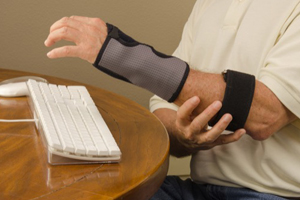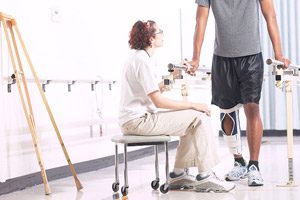What Benefits Are Your Survivors Able to Recover?
 In New Jersey, after a job-related injury, you can apply for disability and medical benefits under the state’s workers’ compensation system. If your injury keeps you from working, either temporarily or permanently, you’ll be able to pursue disability benefits, either for the time you are out of work, for a set period of time (if your injury is permanent), or even for the rest of your life, in certain situations. But what happens if you are killed in a workplace accident or die from an occupational disease?
In New Jersey, after a job-related injury, you can apply for disability and medical benefits under the state’s workers’ compensation system. If your injury keeps you from working, either temporarily or permanently, you’ll be able to pursue disability benefits, either for the time you are out of work, for a set period of time (if your injury is permanent), or even for the rest of your life, in certain situations. But what happens if you are killed in a workplace accident or die from an occupational disease?
Under New Jersey law, the surviving spouse and natural children who were in a worker’s household at the time of death qualify as dependents and are entitled to receive a death benefit after a worker is killed or dies because of a work-related cause. As a general rule, the benefits will be 70% of the worker’s average weekly wage (AWW) for the past 52 weeks. That benefit amount is divided among the dependents. Other relatives or dependents may also seek death benefits, but must prove actual dependency to the workers’ compensation board. A minor child will be considered a dependent until age 18, unless in college or physically/mentally disabled, when benefits may be available for a longer period of time.
In addition, the workers’ compensation insurance company or the employer must pay up to $3,500 in burial or funeral expenses when a worker dies from a job-related cause.
Contact Us
At Taylor & Boguski, we bring more than 70 years of combined legal experience to injured workers throughout New Jersey. For a free initial consultation, contact our office online or call us at 856-200-8989.
We handle all workers’ compensation claims on a contingency basis. We won’t charge you attorney fees if we don’t recover compensation for your losses.


 If you’ve been hurt at work and had to pursue
If you’ve been hurt at work and had to pursue  In New Jersey, when you’ve been
In New Jersey, when you’ve been  As we explained in an earlier blog, to qualify for
As we explained in an earlier blog, to qualify for  In New Jersey, as in other states, when you suffer an injury at work, you are entitled to pursue workers’ compensation benefits to cover lost wages, medical expenses and other costs. There are only two requirements to qualify for benefits—you must have been injured and your injury must have occurred during the course of your employment. In most instances, there is no dispute that you were injured at work. But there are circumstances where the rules may not be so clear. Here are a couple of those instances.
In New Jersey, as in other states, when you suffer an injury at work, you are entitled to pursue workers’ compensation benefits to cover lost wages, medical expenses and other costs. There are only two requirements to qualify for benefits—you must have been injured and your injury must have occurred during the course of your employment. In most instances, there is no dispute that you were injured at work. But there are circumstances where the rules may not be so clear. Here are a couple of those instances. So you have been hurt on the job. In New Jersey, as in other states, you are entitled to seek workers’ compensation benefits for injuries sustained during the course of employment. The workers’ compensation laws were enacted to provide a benefit to both parties in the aftermath of a work-related injury. For the worker, there’s the opportunity to start receiving benefits within weeks of the injury, with benefits retroactive to the date of injury. You don’t have to incur the expense of a lawsuit and you won’t have to wait for compensation until the legal process is exhausted. As an employer, you don’t have to worry that a sympathetic jury will come back with a huge damage award. Payments are generally fixed under the workers’ compensation system.
So you have been hurt on the job. In New Jersey, as in other states, you are entitled to seek workers’ compensation benefits for injuries sustained during the course of employment. The workers’ compensation laws were enacted to provide a benefit to both parties in the aftermath of a work-related injury. For the worker, there’s the opportunity to start receiving benefits within weeks of the injury, with benefits retroactive to the date of injury. You don’t have to incur the expense of a lawsuit and you won’t have to wait for compensation until the legal process is exhausted. As an employer, you don’t have to worry that a sympathetic jury will come back with a huge damage award. Payments are generally fixed under the workers’ compensation system.


